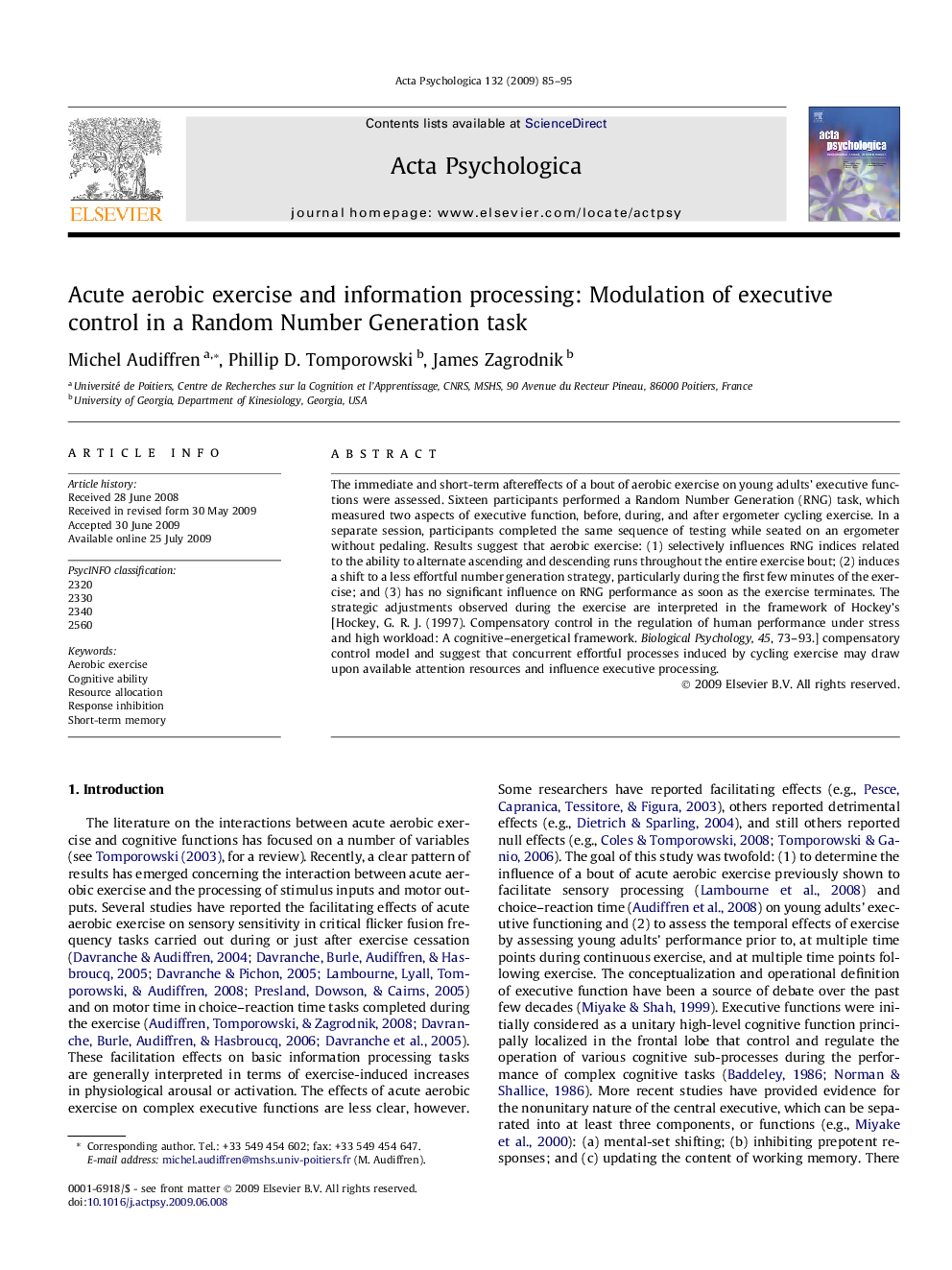| کد مقاله | کد نشریه | سال انتشار | مقاله انگلیسی | نسخه تمام متن |
|---|---|---|---|---|
| 920283 | 920276 | 2009 | 11 صفحه PDF | دانلود رایگان |

The immediate and short-term aftereffects of a bout of aerobic exercise on young adults’ executive functions were assessed. Sixteen participants performed a Random Number Generation (RNG) task, which measured two aspects of executive function, before, during, and after ergometer cycling exercise. In a separate session, participants completed the same sequence of testing while seated on an ergometer without pedaling. Results suggest that aerobic exercise: (1) selectively influences RNG indices related to the ability to alternate ascending and descending runs throughout the entire exercise bout; (2) induces a shift to a less effortful number generation strategy, particularly during the first few minutes of the exercise; and (3) has no significant influence on RNG performance as soon as the exercise terminates. The strategic adjustments observed during the exercise are interpreted in the framework of Hockey’s [Hockey, G. R. J. (1997). Compensatory control in the regulation of human performance under stress and high workload: A cognitive–energetical framework. Biological Psychology, 45, 73–93.] compensatory control model and suggest that concurrent effortful processes induced by cycling exercise may draw upon available attention resources and influence executive processing.
Journal: Acta Psychologica - Volume 132, Issue 1, September 2009, Pages 85–95